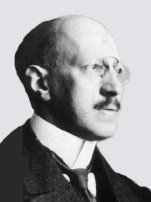|
|

|
|
Iwan Bloch
(1872-1922) a German dermatologist, developed the concept of sexology as a science in ist own right.In 1913, he founded the first sexological society in Berlin together with Magnus Hirschfeld and several other colleagues.
|
|
|
When, in the 19th century, psychiatrists began to study human sexuality, they started with the assumption that most of it was “normal”, and that the few “perversions” were more or less identical with the sins and vices long deplored by the Church. However, when a closer look revealed an unsuspected variety of sexual interests, the doctors promptly proceeded to name, list and classify every new discovery. A steady stream of new case studies produced an ever-lengthening list of “sexual pathologies” with new strange-sounding Greek or Latin names - from “algolagnia” (erotic love of pain) to “zoophilia” (erotic love of animals). At the same time, it became clear that this sheer endless diagnostic list represented a hodge-podge of very disparate elements, and that there was no standard treatment for any of them. Instead, depending on the individual case, one had to apply different therapies for the same diagnosis. Worst of all, most of the time, they proved unsuccessful.
In this situation, a new approach was needed, and it was provided by a new, special “science of sex” that combined the methods of both the natural and social sciences: Sexology. As its founder Iwan Bloch put it:
|
“The double nature of ...sex…, its biological and cultural aspect, (makes it) necessary to found sexology as a science in its own right, which must no longer be seen as an appendix of any other science… Where this would lead us has been shown by the purely medical-clinical approach of (those who) believed they had enriched science when they had only coined new foreign-sounding terms…The purely medical (let alone psychiatric) view of sexuality... is not sufficient to understand the many-sided relationships of sex to all other spheres of human life. These relationships in their totality are the subject of sexology”. (1)
|
|
(1) Iwan Bloch, Die Prostitution, vol. I, Berlin: Louis Marcus 1912, pp. vii-viii. |